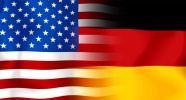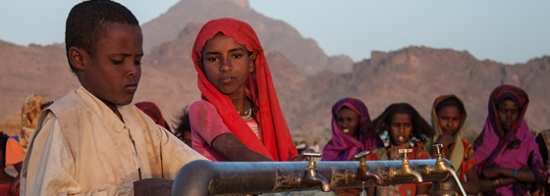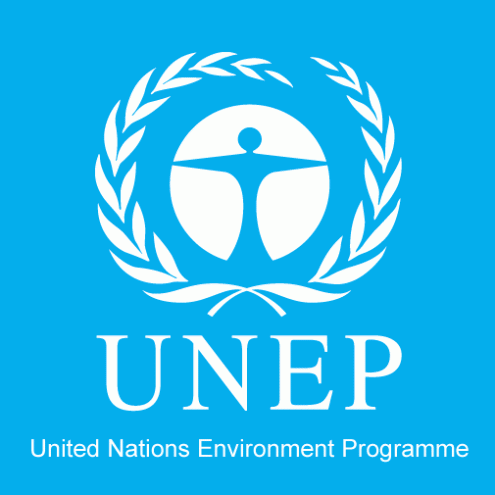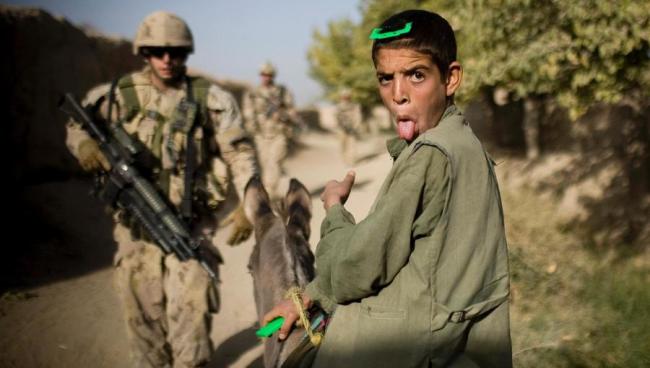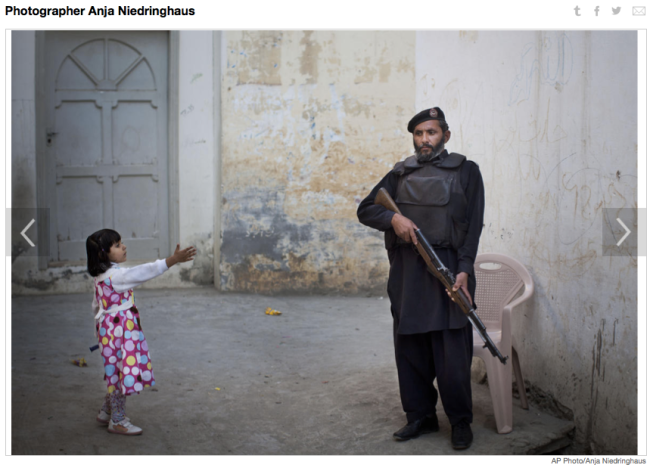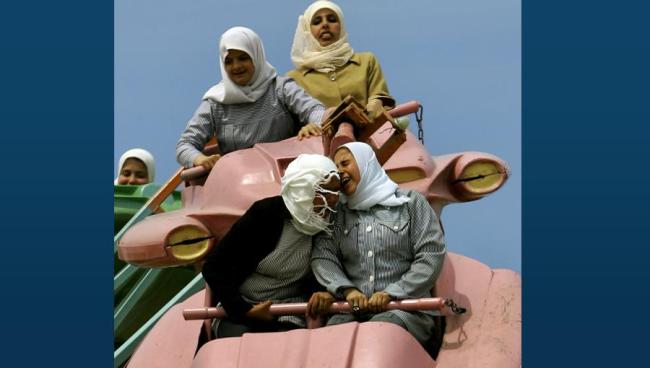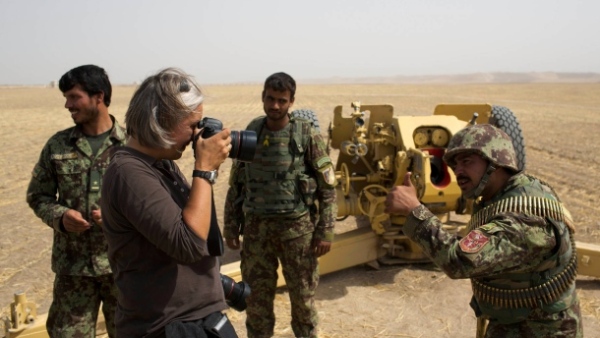Uncategorized
The role of Sohaib Athar in the death of Osama Bin Laden
An IT consultant, living in Abbottabad, unknowingly tweeted details of the US-led operation as it happened.
Sohaib Athar wrote that a helicopter was hovering overhead shortly before the assault began and said that it might not be a Pakistani aircraft.
He only became aware of the significance of his tweets after President Obama announced details of Bin Laden’s death.
Mr Athar’s first posting on the subject came at around 1am local time (9pm BST).
He wrote: “Helicopter hovering above Abbottabad at 1AM (is a rare event).”
Soon after, he reported the sound of an explosion, now known to have been US forces blowing up their damaged helicopter.
“A huge window shaking bang here in Abbottabad Cantt. I hope its not the start of something nasty :-S”
Throughout the raid, Mr Athar was drawing on information from friends in the local area who were also online.
In the five years since Twitter was created, it has played a growing role in the reporting of world events.
The first glimpse that many people had of the site’s potential was in 2009 when a US Airways plane made an emergency landing on New York’s Hudson.
Ferry passenger Janis Krums tweeted a picture of the stricken aircraft, moments after it came down.
More recently, Twitter has been hailed as a catalyst in making world events happen.
Anti-government protesters in the Middle East and parts of Africa have made extensive use of the website, along with Facebook to disseminate their messages.
The 2011 Egyptian uprising, which led to the ousting of President Hosni Mubarak, has been widely referred to as the “Twitter Revolution”.
Saving Private Ryan
by Huy Do
Saving Private Ryan is a 1998 American epic war film set during the invasion of Normandy in Second World War. It was directed by Steven Spielberg and written by Robert Rodat. The film is notable for its graphic and realistic portrayal of war, and for the intensity of its opening 27 minutes, which depict the Omaha Beach assault of June 6, 1944.
The film is based on a true story, set in Second World War. It follows a U.S. commando team leaded by Captain John H. Miller (Tom Hanks) searching their fellow – a paratrooper, Private First Class James Francis Ryan (Matt Damon) who was trapped in the enemy base. In addition, they also knew Ryan was the son of a family of four brothers that three have sacrificed their lives for the countries, leaving only Ryan survived. However risky it was, Captain Miller and his squad rushed in to danger and rescue Ryan successfully.
The greatest validity of Saving Private Ryan is the grief insight of war’s cruelty along with the comradeship and sense of responsibility.The grief caused by wars must be known popularly; however, it is unlikely to be perceived thoroughly. In the cruelty of war, the fellowship among the soldiers became the resplendent symbol. They live together, die together, working towards the ultimate task.
Iraqi police claim US troops executed family
by Huy Do
I once read an article posted on the Guardian Tuesday 21 March 2006, named “Iraqi police claim US troops executed family” It was written on The Ishaqi incident which refers to the reported mass murder of Iraqi civilians allegedly committed by United States forces in the town of Ishaqi in March 2006. In response to the issue, Major Tim Keefe, a US military spokesman in Baghdad said on The Guardian:
“A battle damage assessment, the initial reports, said that what they saw were four people killed – a woman and two children and an enemy – and they detained an enemy[…] A man suspected of being a “foreign fighter facilitator” was taken into coalition custody and is being questioned[…] I saw those [autopsy] photos and it didn’t appear there were any handcuffs.”
A question suddenly came to my mind: What is the role of a military spokeperson?
As far as I as I am concerned, military spokepeople are in charge of military issues; therefore, they would be the focal point for all media relations – local and international media each time a military event happened. Furthermore, a military spokeperson liaises with the National Defence Office to have the latest, accurate information on military activities and priorities. He or she issues press releases and provides information to the public.
Link Guardian: http://www.theguardian.com/world/2006/mar/21/iraq.julianborger
What is the future of the media in the 21st century?
By Eyemobe Mattu
Activities all around the world are seen through the lens of the media but continuously faced lots of criticism from government, military and the civil society.
In carrying out their duties, they are molested, arrested and sometimes killed. The past weeks have been quite challenging and sad for the media…;Anja Niedringhaus a photojournalist with the Associated Press was killed in Afghanistan, Hamid Mir of Pakistan was shot six times though survived but not the first time that he was targeted. Several journalists are held in Sloviansk and the ‘self imposed mayor’ describes them as; ‘untruthful reporters‘, Aljazeera reporters are held in custody in Egypt because the government accuses them of ‘treason and affiliation to the Muslim Brotherhood’. The media have equally witnessed the release of some colleagues that were captured in Syria for months…
All of these have not stopped the media from being objective but, will the young generation be ready to embark on this journey considering the proliferation of citizen journalism,social media and the censorship from government? As we celebrate the World Press day, It’s a medium for the government and media to embrace each other with a clean heart.
Suffering in Vietnam War
Video Posted on
by Huy Do Quang
In the Vietnam War, there was a lot of innocent people died, including the elderly and young children, they do not even carry weapons. This video has been compiled from multiple images and video of the reporter, who has witnessed.
Thanks to field reporters today that we can imagine this tragic war.
Other peoples? war!
By Pavol Just
War is a cycle of people destroying and then followed by burying the dead, taking care of the wounded, replenishing stockpiles, repaying war debts, and rebuilding.
The inevitable legacy of this well-worn path is debt; promises and commitments that extend far into the future. Long-term costs also include structural increases to the military personnel and health care systems; depreciation on military equipment and weaponry, restoring the military, Reserves and National Guards to pre-war levels of readiness, and maintaining a long-term military and diplomatic presence in the region.
The peak year for paying disability compensation to World War I veterans was in 1969 – more than 50 years after Armistice. Payments to Vietnam and first Gulf War veterans are still climbing.
But what about Germany and Japan repaying the loans for rebuilding their countries after they were demolished? They pay in different currency. They pay with their dedication and with the loss of sovereignty. Japan and Germany are US colonies giving back to the Imperialist nation although it is easy to see that their people, highly educated and skilled, possessed the capacity to rebuild their shattered societies.
The allies instituted an ambitious programme of de-Nazification in Germany, later quietly abandoned as it became clear that German society would be unworkable if all former Nazis were forbidden to work. In his Four Freedoms speech of January 1941, President Roosevelt talked of a new and more just world, with freedom of speech and expression and of religion, and freedom from want and fear.
As we can see it was successful and Angela Merkel is a good leader. This is the German flag.
http://www.theguardian.com/world/2009/sep/11/second-world-war-rebuilding
In reality Germany and Japan are nations that are politically colonised by the hegemon. There is nothing wrong about it though. They must pay their dues. But what about paying back the gold stolen from Czechoslovakian bank by the Nazis and used by British bank to finance the war for Hitler?
Well something stinks here. We want a new flag!
THE ROLE OF THE MEDIA IN POST-CONFLICT RECONSTRUCTION
By Enefa-a Otonye Erekosima
There are various stakeholders investing in the process including Private sector investment which generally takes longer, arriving when stability seems more assured, though mobile telecommunications has in recent years often been the first sector to experience substantial new investment. Several terms have been used for intervention at different phases in the transition from war to peace, to peacekeeping & peace-making, peace building, and post-conflict reconstruction, for example, the last of which is concerned with the development of a more stable security and political environment which can generate the economic growth and social cohesion that are likely to contribute to sustainable peace. One of the most important discussions in recent thinking about post-conflict reconstruction concerns the balance between stabilization and public participation in the rejuvenated polity. Social media can also be used to raise tensions between ex-combatants and communities emerging from conflict.
ICTs, old and new, are at the heart of public debate and public participation. Relatively recently these platforms were dominated from above, by governments, politicians and the owners of newspapers, radio and television channels. The rapid spread of mobile phones through all sectors of the population in most countries, the emergence of the Internet and particularly the arrival of, services such as social networks which are accessible by mobile phone as well as by PC, have significantly altered the balance between those who control and those who use information and opinion platforms by making it much easier for people to express and share their views in public. Enthusiasm for new ICTs should not, here, obscure the importance of more traditional media. Television and, in many cases especially, radio are crucial sources of information for people who are living in or have recently suffered from violent conflict. Local radio can be a vital resource for people making judgements about their families’ immediate security, or economic risks such as what and when to plant. Balanced and well-informed reporting can build confidence and support stabilisation; broadcasts that are partisan or based on rumour can promote disharmony and spread anxiety. The quality of broadcast media in post-conflict situations is therefore of considerable significance to stabilisation and reconciliation, as has been increasingly recognised by governments, civil societies, stakeholders and other donor agencies in the last couple of years.
Post-conflict environments : the example of Sudan
By Claire Peltier
The Sudan had known many conflicts during most of the last 50 years, including a long civil war between the North and the South of the country and violence is continuing even today in the Darfur. A global peace agreement signed in 2005 ended the North-South civil war and offered perspectives for a wider resolution of the conflicts in the Sudan. Nevertheless, the conflicts around the rare natural resources – fertile lands, trees and water – stay factors of instabilities in several parts of the country.
Indeed, numerous challenges remain to be resolved to guarantee the peace for length-term, the food safety and the sustainable development for the Sudanese population. Those challenges include the desertification and the regional climate change, the increased vulnerability in natural disasters, environmental impacts of the circulation of people, the devastating impact of the degradation of grounds on the livelihood of the population, the deforestation, the fast urbanisation and a petroleum industry rapidly expanding.
The United Nations Environment Programme (UNEP), an agency dependent of the United Nations Organisation, assists in developing countries in implementing environmentally sound policies and practices. It established a program to contribute to the peace and the stability in the Sudan, by helping the international community, the governmental institutions at every level and the civil society to face the environmental challenges in the country.
German War Correspondent killed in Afghanistan
By Rolands Silovs
It’s a quite Saturday evening in Cambridgeshire and I am catching up on news of the world from the last few days…my eyes stop at one particular news report on the N24 news site – Anja Niedringhaus has been killed!
Anja Niedringhaus, for those who might not know, was one of the most talented and remarkable, German descent war photographers of our times. She has received a huge variety of awards including the Pulitzer Prize for her pictures taken during the Iraq war. She was a fearless woman who was willing to travel to any conflict hot spot throughout the world whether it was Afghanistan, Iraq, Pakistan, Libya or Bosnia. She always found the right moment to capture and her pictures told us stories that no news team had seen.
She was killed Friday (4th of April 2014) when gunshots aimed at the car she was driving in along with fellow The Associated Press journalist Kathy Gannon (from Canada) who was severely injured in the attack executed by an Afghan police officer.
The car Anja and Kathy were driving in was a part of a convoy for the upcoming Parliament Elections in Afghanistan held today (5th of April). They were driving through one of the most dangerous provinces in Afghanistan, the Khost Province, when the convoy was attacked and gun shots were aimed especially at Anja Niedringhaus.
Unfortunately, in the last few weeks attacks on foreign journalists in Afghanistan are becoming an increasing trend. As the eyes of the world are aimed at the Parliament Elections in Afghanistan, terrorist groups use this opportunity to make the world see and believe that Afghanistan is not as safe as we might been told it is. In the last few weeks there have been several attacks aimed especially at foreign journalists. Only a few weeks ago the Swedish journalist Nils Horner who was working for a Swedish radio station was shot in the head whilst walking along an embassy neighbourhood. Only a week later Sardar Ahmad a journalist for the French news agency AFP was killed at the Serena Hotel in Kabul which is claimed to be the safest place for foreign journalists and wealthy Afghan businessmen.
This new wave of assassinated journalists in Afghanistan is the first in 4 years. After the murder of Rupert Hamer in 2010 who was working for the British newspaper “Sunday Mirror” was killed by a bomb whilst accompanying US soldiers on a routine patrol in south of Afghanistan. We can only hope that this diabolic terrorism act of killing journalists, people who are keeping the world informed, will not become an increased trend and the world will not lose more talented and courageous journalists like Anja Niedringhaus.
Here are some of the pictures by Anja Niedringhaus:
More touching and remarkable photos by Anja Niedringhaus can be found at: http://www.anjaniedringhaus.com
Awesomeness effect or banana republic.
By Pavol Just
Update: http://www.theguardian.com/world/2014/apr/03/white-house-cuban-twitter-zunzuneo-covert
Please click on the link above.
The term “banana republic” was coined at the turn of the 20th Century in reference to the economic and political domination of weak or corrupt governments in Central America by the United Fruit Company, the corporation now known as Chiquita. In 1950, Jacobo Arbenz Guzman was elected with 65% of the vote. Chiquita, waged a propaganda war and managed to convince the American public and politicians that Arbenz was secretly a dangerous communist who could not be allowed to remain in power. With McCarthy-era hysteria in full swing, President Eisenhower secretly ordered the Central Intelligence Agency (CIA) to overthrow the democratically elected Arbenz in a 1954 covert operation.The CIA armed and trained an ad-hoc “Liberation Army” under the command of an exiled Guatemalan army officer, and used them in conjunction with a diplomatic, economic, and propaganda campaign. At the time, the American public was told that Guatemala was undergoing a “revolution;”
The PR blitzed to spin the left-leaning government as covertly Communist. He urged Chiquita to find a top Latin American politician to condemn Guatemala’s actions, planted stories in major newspapers and magazines on the “growing influence of Guatemala’s Communists,” prodded the New York Times to assign reporters who were sympathetic to his cause, and even managed to obtain coverage in liberal journals like The Nation. PR brought a group of journalists to the region at Chiquita’s expense to “gather information,” but with everything the press saw and heard carefully staged and regulated by their host.
That is the other side of the story. There is no news if it’s not well prepared by the PR. Am I naive if I seriously believe that every news that seems to urge US or UN to take action is staged through media like CNN and BBC. Am I Partisan Biased? Facebook revolution does not exist, the same like orange, velvet or Arab spring. They only come to exist if they fit the spin. Every urgent news is well thought through.
Avoid news from CNN. The theory predicted that as a means of minimizing dissonance, people would seek out information they expected to agree with. If there is one thing that the CNN-effect research on news media and humanitarian intervention during the 1990s teaches us, it is that once one peels back the layers, it quickly becomes apparent that there is much more to political phenomena than can be understood through reference to the media. Those policies with high potential costs (both economical and political) are the least likely to be strongly influenced by media pressure (Livingston, 1997; Robinson, 2002). The main strategy is to wear out the other side, and the results on the ground are less important because victory is defined in terms of perceptual changes leading to acceptance of demands.
BBC or CNN and conflict were made for each other. But did I make the Banana coup de ‘Etat up? Watch it here:
http://www.bbc.co.uk/cbeebies/melody/stories/melody-red-riding-hood/

